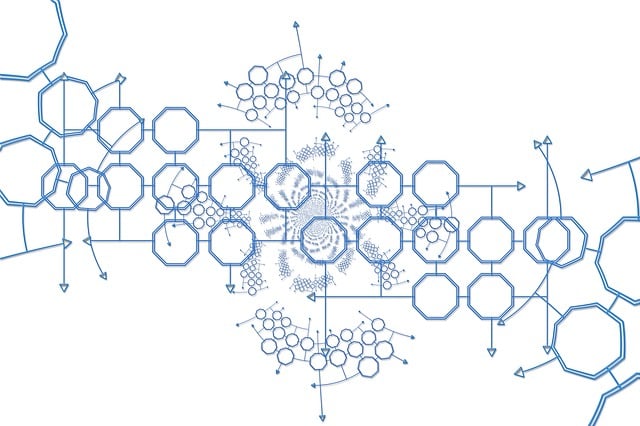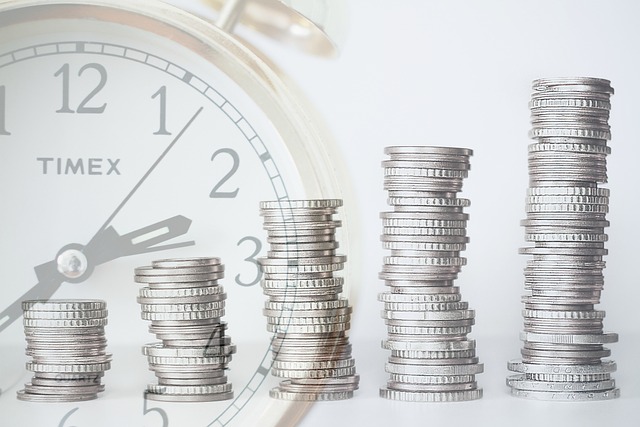Table of Contents
Potential uses for blockchain technology in the future
Blockchain technology possesses the potential to shake up various industries in the future. Imagine a world where every transaction, contract, or piece of data is securely stored on a decentralized digital ledger, free from alteration or tampering. This technology may lead to increased transparency, efficiency, and trust in sectors like supply chain management, finance, healthcare, and more.
Additionally, the concept of smart contracts, self-executing contracts with the terms of the agreement directly written into lines of code, holds immense promise. These contracts could automate and streamline numerous processes, reducing the need for intermediaries and minimizing the chances of disputes or errors. As we navigate through this era of digital transformation, blockchain’s potential seems boundless, offering innovative solutions to age-old challenges across a myriad of industries.
How blockchain can revolutionize supply chain management
Blockchain technology, with its decentralized and transparent nature, is poised to revolutionize supply chain management as we know it today. By leveraging blockchain, companies can trace the journey of products from their origin to the end consumer, ensuring authenticity and minimizing the risk of counterfeit goods infiltrating the market. This creates a level of trust and accountability that is unparalleled in traditional supply chain systems, leading to improved efficiency and reduced costs in the long run.
In addition, blockchain can streamline the entire supply chain process by automating smart contracts and reducing the need for intermediaries. This means faster transactions, real-time tracking of shipments, and enhanced collaboration among all stakeholders involved. By digitizing and storing all relevant information on a secure and immutable ledger, blockchain provides a comprehensive and tamper-proof record of every step in the supply chain, paving the way for a more agile and responsive ecosystem.
Enhancing cybersecurity with blockchain technology
If you’re into cybersecurity, you’ve probably heard of blockchain. This buzzword has been making waves in the tech world for its potential to beef up security measures. Imagine a digital ledger that records every single transaction in a way that’s practically tamper-proof. That’s what blockchain brings to the table – a new level of trust and transparency in a world filled with data breaches and cyber threats.
Picture this: every time a piece of data is added to the blockchain, it’s encrypted, time-stamped, and linked to the previous block in a chain. These blocks are then distributed across a network of computers, making it nearly impossible for hackers to alter the information without being detected. This decentralized structure not only secures sensitive data but also minimizes the risk of a single point of failure. So, next time you hear about blockchain in the realm of cybersecurity, know that it’s not just a fancy term – it’s a game-changer in safeguarding our digital assets.
The impact of blockchain on the healthcare industry
Blockchain technology has been causing a stir in the healthcare industry with its potential to transform how sensitive patient data is managed. By leveraging blockchain’s decentralized and secure nature, healthcare providers can ensure that patient records are tamper-proof and easily accessible when needed. Imagine a system where medical histories, test results, and treatment plans are all securely stored in a blockchain network, allowing for seamless information exchange between different healthcare entities without compromising data integrity.
Moreover, blockchain can streamline and hasten processes like insurance claims and prescription refills. Through smart contracts on a blockchain network, the verification and processing of claims can be automated, reducing administrative burdens and potential errors. Patients can have more control over their health data and who can access it, enhancing privacy and security. As blockchain continues to make waves in the healthcare realm, it holds the promise of revolutionizing how patient information is handled and improving overall service efficiency.
• Blockchain technology offers a decentralized and secure way to manage patient data
• Medical histories, test results, and treatment plans can be securely stored in a blockchain network
• Information exchange between healthcare entities becomes seamless without compromising data integrity
• Streamlining processes like insurance claims and prescription refills through smart contracts on a blockchain network
• Automation reduces administrative burdens and potential errors in processing claims
• Patients gain more control over their health data privacy and security with blockchain technology
• The promise of revolutionizing how patient information is handled and improving service efficiency in the healthcare industry
Using blockchain for secure voting systems
With the rise of digital advancements, the concept of incorporating blockchain technology into secure voting systems has gained momentum. Imagine a world where every vote cast is encrypted and stored securely on a decentralized digital ledger. This would not only ensure transparency and accuracy but also eliminate any possibility of tampering or manipulation, revolutionizing the way we conduct elections.
The beauty of blockchain lies in its ability to provide a tamper-proof system where each transaction, in this case, each vote, is recorded in a way that cannot be altered retroactively. The use of cryptographic algorithms ensures the security and authenticity of each vote, giving voters the confidence that their voices are being accurately represented. Implementing blockchain in voting systems could potentially increase voter turnout, as people may feel more confident in the integrity of the electoral process knowing that their votes are being securely recorded and counted.
Blockchain applications in the real estate industry
Blockchain technology is shaking up the real estate world, bringing a wave of innovation and security. Picture this – digital property titles that are tamper-proof and immutable, stored securely on the blockchain. This not only simplifies the process of verifying property ownership but also reduces the risk of fraudulent activities in the industry. Imagine buying or selling a property without the need for intermediaries, making transactions quicker and more transparent.
Furthermore, smart contracts powered by blockchain can automate tasks such as rental payments or property sales, streamlining the process and cutting down on bureaucratic red tape. This means less room for human error and more efficient transactions. With blockchain in the real estate sector, the future looks bright and full of possibilities, unlocking new ways of conducting business in a more secure and streamlined manner.
Improving transparency in the food industry with blockchain
Can you imagine knowing exactly where the food on your plate comes from and every step it took to get there? With the integration of blockchain technology in the food industry, this level of transparency is becoming a reality. Blockchain allows for the creation of a secure, unchangeable record of every stage in the food supply chain, from the farmers and suppliers to the distributors and retailers. This means that consumers can have full visibility into the journey of their food, ensuring its authenticity and quality.
Additionally, blockchain technology can help in quickly tracing the source of any contamination or foodborne illness outbreaks, facilitating rapid response and preventing further spread. By recording each transaction and movement of food products on the blockchain, companies can easily identify and isolate affected batches, safeguarding public health and minimizing the impact on both consumers and businesses. This enhanced traceability not only improves safety measures but also builds trust between consumers and the food industry, fostering a more accountable and reliable system overall.
Blockchain solutions for identity verification
Identity verification has always been a bit of a hassle, right? I mean, who enjoys jumping through hoops just to prove that they are who they say they are? Well, guess what? Blockchain is here to shake things up! Imagine a world where your identity is securely stored on a decentralized network, making it nearly impossible for anyone to tamper with or steal your personal information. With blockchain technology, you can have peace of mind knowing that your identity is protected by the latest cryptographic techniques.
But wait, there’s more! Blockchain can also streamline the process of verifying your identity, making it faster and more efficient than ever before. No more waiting days for your identity to be confirmed – with blockchain solutions, you can verify your identity in a matter of seconds. Plus, since all your information is stored on a decentralized ledger, you have full control over who can access it and when. Say goodbye to those pesky third-party identity verification services – blockchain is putting the power back in your hands.
The role of blockchain in combating counterfeit products
Blockchain technology is shaking up the fight against counterfeit products in a big way. By creating an unalterable and transparent record of transactions, blockchain is transforming the way we track and verify the authenticity of goods. No more playing detective – with blockchain, consumers can easily verify the journey of a product from its origin to their hands, giving them peace of mind and confidence in their purchases.
Imagine a world where counterfeit products are a thing of the past, where each item’s history is securely stored on a blockchain, ensuring its legitimacy. Blockchain technology empowers companies to implement robust anti-counterfeiting measures, safeguarding their brand reputation and protecting consumers from fake goods. With blockchain, the days of falling for knock-off products are numbered, as trust and transparency become the new norms in the fight against counterfeiting.
Blockchain’s potential for transforming the gaming industry
Imagine a world where gamers truly own their in-game assets and can trade them freely with others without any hassles. This could soon become a reality with the implementation of blockchain technology in the gaming industry. By utilizing blockchain, game developers can create unique digital assets that are secure, verifiable, and immutable, giving players true ownership and control over their virtual belongings. This has the potential to revolutionize the gaming experience, offering a level of transparency and authenticity never seen before.
Additionally, blockchain can enable the creation of decentralized gaming platforms where players can compete, collaborate, and interact in a trustless environment. This opens up a whole new world of possibilities for gaming enthusiasts, from crowdfunding game development to organizing tournaments with transparent prize pools. The use of smart contracts can also automate certain aspects of gameplay, such as rewarding players for achievements or facilitating in-game transactions, leading to a more seamless and engaging gaming experience overall.
Using blockchain for efficient cross-border payments
Blockchain technology is shaking things up in the world of cross-border payments, making transactions smoother and more cost-effective. By utilizing smart contracts and decentralized networks, blockchain streamlines the payment process, eliminating the need for intermediaries and reducing transaction fees. This means that sending money across borders can now be as easy as sending a text message, without the usual delays and high costs associated with traditional banking methods.
Furthermore, blockchain’s transparent and secure nature ensures that cross-border payments are completed swiftly and with minimal risk of fraud or errors. This level of trust and efficiency is a game-changer for businesses and individuals alike, allowing for seamless international transactions that are not only faster but also more reliable. With blockchain at the helm, the future of cross-border payments looks promising and poised for continued growth and innovation.
Blockchain applications in the music and entertainment industry
In the world of music and entertainment, blockchain technology is like the backstage VIP pass that’s slowly making its way to the forefront of the show. Imagine a world where artists can directly reach their fans without the need for intermediaries gobbling up their earnings. With blockchain, musicians can tokenize their music, giving fans the opportunity to invest in their favorite artists’ work. This opens up a whole new realm of possibilities where fans become more than just listeners; they become stakeholders in the musical journey, fueling the creation of new tunes and experiences.
But the fun doesn’t stop there. Blockchain is like that cool friend who knows everyone and can make swift introductions. In the entertainment industry, this means streamlined licensing and royalty distribution. Picture a scenario where licensing agreements are stored on an immutable ledger, ensuring that creators get their fair share promptly. No more waiting endlessly for the paycheck to arrive; blockchain ensures that the money flows in a transparent and efficient manner, paving the way for a smoother ride on the royalties expressway.
Enhancing data security with blockchain technology
As data breaches and cyber attacks become more prevalent in today’s digital age, businesses and individuals are constantly seeking ways to enhance data security. Blockchain technology, with its decentralized and immutable nature, offers a promising solution to bolster data security measures. By storing data in a tamper-proof and transparent manner across a network of nodes, blockchain can significantly reduce the risk of unauthorized access or manipulation of sensitive information.
One of the key features of blockchain technology that enhances data security is its cryptographic algorithms. Each block of data is securely encrypted and linked to the previous block in a chain, making it incredibly difficult for cybercriminals to alter or hack into the information. This level of encryption provides a robust layer of protection for sensitive data, ensuring that it remains secure and uncompromised. Additionally, the decentralized nature of blockchain means that there is no single point of failure, further reducing the vulnerability of data to malicious attacks.
The future of blockchain in the energy sector
Blockchain technology is set to unleash a wave of innovation in the energy sector. Picture this: smart grids that can autonomously balance energy supply and demand in real-time, thanks to blockchain-enabled peer-to-peer energy trading. Imagine homes equipped with smart meters that not only track energy consumption accurately but also automatically purchase the most cost-effective energy from nearby solar panels or wind turbines, all made possible by blockchain’s secure and transparent record-keeping capabilities.
Moreover, think about the potential for carbon credit trading on a global scale, facilitated by blockchain technology. This means that individuals and organizations can easily track and trade carbon credits, incentivizing the adoption of greener energy practices. With blockchain, the energy sector could undergo a paradigm shift, moving towards a more decentralized, sustainable, and efficient future, where every electron’s journey can be traced back to its source with utmost precision.
Blockchain’s potential to revolutionize the insurance industry
Blockchain technology has the potential to shake things up in the insurance industry, offering a new level of transparency and security. Imagine a world where every step of the insurance process, from policy creation to claim settlements, is securely recorded on an immutable ledger. This could streamline the entire insurance workflow, reduce fraud, and increase trust between policyholders and insurers.
One of the key advantages of blockchain in insurance is the ability to automate processes through smart contracts. These self-executing contracts can automatically trigger actions when certain conditions are met, without the need for intermediaries. This not only speeds up claim processing but also ensures that all parties involved adhere to the terms of the contract, reducing disputes and improving overall efficiency in the insurance ecosystem.


